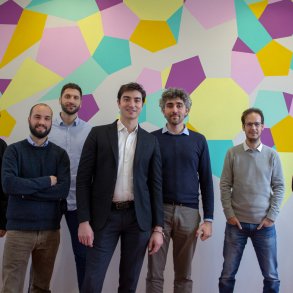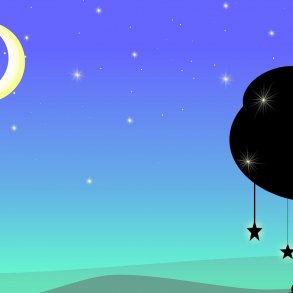By Dara Blumenthal, published at medium.com and originally published with Ten Directions on July 10, 2019
Part 1 of this article is here.
There is this thing in meditation that at some point, you have to actually drop the meditation itself. Because otherwise, all you’re doing is training yourself to use a strategy to do meditation. The point isn’t to meditate, the point is to change how you live your life.
The thing with organizations, and goals, and roles, and all of that is that we’re just continually training ourselves to play a role, be in the future, and do the thing we’re supposed to do. And in our current era, where will that get us? There is an urgency here that I hope you’re feeling.
What I’ve embarked on with some brave, self-aware, intelligent, and cutting-edge teams is first and foremost learning a new way of being together — not simply doing together.
That is to say, the work is informed by the emergent potential of being, rather than conflated with the predetermined doing.
For example, we don’t work with goals, or a plan, or a road map, or anything like that. The work is nonlinear, and it isn’t always clear where we’re headed. We have a commitment to servicing the moment, what is arising in real-time, exploring the multiple truths in the room, and following what comes.
In many ways, uncertainty is at the forefront and we’re guided by some deep intuitive force that is wanting to mature, break free, expand, and/or speak out.
It is learning how to be with all of experience and allowing that to light the way. Everyone is shedding their resin shields one step at a time.
This is not easy to ROI-ify before we embark. The way that this has started to show up for me in the organizational context is through what I’ve been calling Emergent Facilitation.
And this goes beyond “bringing your whole self to work” (a fraught semantic and imaginal construction to begin with) — this is how the fullness of being can actually emerge dynamically and interdependently. This is how work can actually help us to become more whole — first, we have to be willing to let it.
And there are simple ways that facilitators and teams can begin to shed the limitations of relating in self-protective ways.
Here are a couple of experiments you can try in your next few meetings:
- Simply inquire with yourself, directing the inquiry to the inside of your torso (heart, belly, or just below your sternum), and just see what answers come (don’t think about it with your head): “How does this meeting feel?” then “How does this meeting feel for us, the team or group?” then “What needs to happen or be said that isn’t?”
- Pay attention to how often people speak in the first person (I), the second person (We), and the third person (It). Try inviting the group to only speak in the first or second person. Make a note of what happens.
- Begin your meeting with a short grounding practice. Invite everyone to feel their feet on the floor, the way their body makes contact with the chair, and how it feels to arrive in this moment right now. Start with becoming present to yourselves and then each other.
We fundamentally need to learn how to be together, not purely do together.
Sure, doing is super important at work. And we’re not quite at the moment of civilizational collapse (some projections estimate we still have about 30 years before that comes to pass) so most of us still have a lot of doing ahead of us.
So I’d like to invite you to consider how actually taking a handful of hours a few times a quarter to radically be together — to sit in the discomfort of how we hurt each other, to expose your ideas, desires, fears, and visions to those around you, and to take responsibility for the ways you’ve shown up in the recent past — can radically impact your ability and fundamentally grow your capacity for accomplishing what you need to accomplish.
This is in many ways, the process of making the private, inner world public to those that you spend huge amounts of your life with or rely on greatly throughout the year to reach your goals, and where they’re also seen and called to action.
This is not simply listening to one another, this is actively grappling with our humanity, and all the emergent potential that comes with it, in real-time to discover behaviors, practices, levels of respect, and ways of being together that invite greater and deeper capacities and our humanity to show up in the days, weeks, and years that follow.
It is holographic work, potentially generating insight and expansion across multiple domains, into the past and future.
It is holographic in this way because you could uncover a dynamic you’re playing out with a colleague that actually began when you were a child — helping you heal a core wound and support you to stop giving your power away — or give you insight into your familial relationship and how you could become more compassionate with yourself or your partner or child, or propel your path forward by creating connections in your psyche that have until now laid dormant. Learning how to be with others and to genuinely relate can impact your whole life.
I am passionate about the power of the private inner world as we begin to weave it into our organizational contexts. Not at the individual level, but in and through the complex, nuanced, subtle, and unseen group dynamics through which daily work unfolds.
As my Buddhist teacher says, there is no private life.
In this moment of our human journey, we need to be increasingly driven by compassion for all. No more private suffering. We are fundamentally social animals, alienated from ourselves and each other. Stuck behind our resin shields. We need each other in order to grow and develop, to achieve greatness, and to solve the wicked problems we’re facing.
For many, work is the closest thing they will ever experience to real community. If we don’t make it there, we won’t make it anywhere.
So sure you can do it for the good of your bottom line, to become a higher performing team, or you can make yourself vulnerable and empowered in service of our very humanity.
“We may not make it… as a human community, we may be extinguished. Snuffed out by whatever is keener than us, stronger than our survival. But at least, we can go down looking into each other’s eyes.”~ Joanna Macy
Republished with permission of the author.
Featured Image/graphic link and some block quoting added by Enlivening Edge Magazine.




